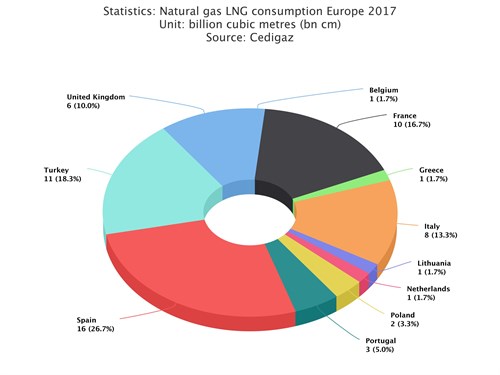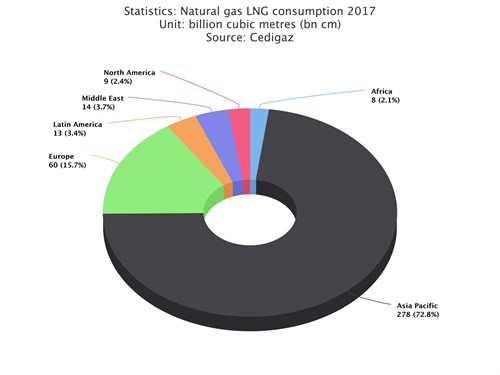Qatar could invest in German LNG terminal
BERLIN (Reuters) - Qatar’s energy minister threw his support behind the possible cooperation of Qatar Petroleum, the world’s top supplier of liquefied natural gas (LNG), on a potential German LNG terminal.
On Wednesday Qatar Petroleum said it was in talks with Germany’s RWE and rival Uniper about cooperating on a potential LNG terminal.
“As a matter of principle, Qatar is interested,” the minister told Reuters ahead of a bilateral investment conference in Berlin on Thursday, where both German Chancellor Angela Merkel and Qatari Emir Tamim al-Thani will speak.
“Certainly it should be a win-win situation. Both parties should benefit from such a thing,” he added. “If Germany lent itself to such a suggestion - if we are invited to do so - we will be happy.”
 |
| Source: EWA |
Al-Sada said Qatar was also keen to export LNG to Germany, highlighting the environmental advantages of LNG, the reliability of Qatar’s deliveries and that it could help Germany to diversify its energy supply.
But he said that Qatar does not want to crowd out other suppliers, adding: “There will be room for everybody’s gas.”
 |
However, talks about a German terminal have been revived as global LNG flows increase and ahead of looming requirements for cleaner fuels.
A consortium comprising Dutch gas network operator Gasunie, German tank storage provider Oiltanking and Dutch oil and chemical storage company Vopak is trying to get such a project off the ground.
A funding decision by the consortium, dubbed German LNG Terminal, is expected by the end of 2019.
Reporting by Andrea Shalal; Editing by David Goodman

- Freeport LNG export plant in Texas to take in more natgas after unit shut on Monday
- LNG cool-down vessel arrives at ExxonMobil's Golden Pass plant in Texas
- Freeport LNG export plant in Texas reports shutdown of liquefaction train
- TotalEnergies and Mozambique announce the full restart of the $20-B Mozambique LNG project
- Five energy market trends to track in 2026, the year of the glut



Comments